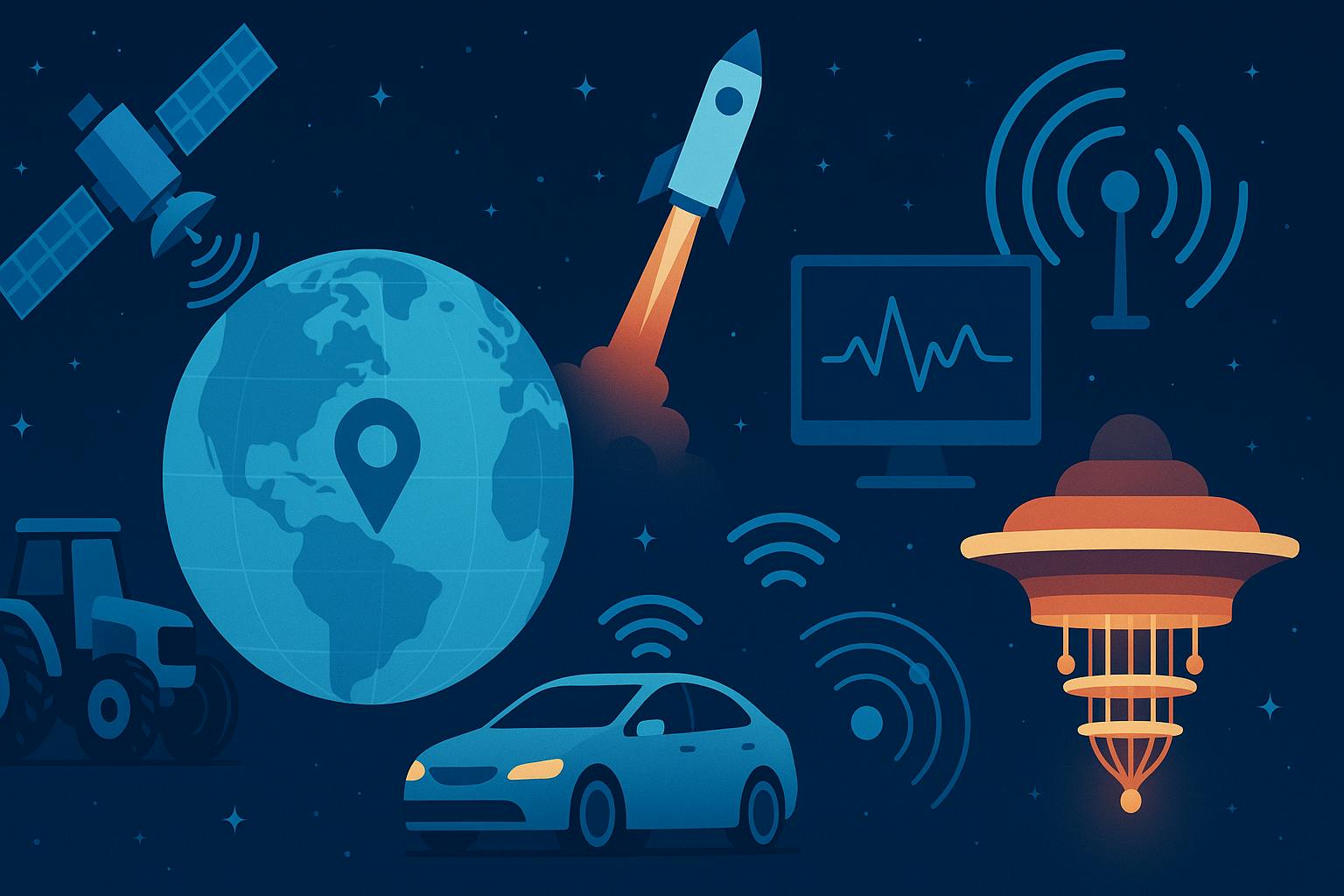Why is the FCC’s PNT inquiry the most important, overlooked tech story of 2025?
Let’s set the stage with a scene from May 10th, 2024:
The Northern Lights danced gloriously across the skies of Nebraska. Social media went neon. But down on the ground? Farmers were dead in the (literal) dirt. Their autonomous tractors couldn’t move. Why? Because a solar storm had knocked out GPS.
That same GPS system underpins nearly every facet of modern life: banking, cellular networks, first responder communications, Wall Street trading clocks, even the streaming signal that told you to “continue watching?” on Netflix. And the thing we all just learned (again)? GPS is vulnerable. And GPS alone is not enough.
This is why the FCC’s March 2025 Notice of Inquiry on Positioning, Navigation, and Timing (PNT) is so interesting. Don’t let the bureaucratic title fool you — this document is a call to arms (and algorithms). It’s the kind of sleepy-sounding government action that could actually determine whether we can fight, farm, or even find our way in the years ahead.
One Signal to Rule Them All?
We’ve built an empire on a single, fragile foundation.
GPS — a miracle of Cold War-era innovation — is now the nervous system of the digital economy and battlefield alike. But it wasn’t designed for that. Its signals are faint, easily jammed, and laughably weak indoors, underwater, or underground. A teenager with a $30 jammer from AliExpress can disrupt traffic systems. A foreign adversary with electronic warfare tools can make precision munitions miss entirely.
This isn’t tinfoil-hat paranoia. It’s already happening.
Ukraine has become a sandbox for GPS denial. Russia jams, spoofs, and scrambles PNT signals daily, forcing NATO to rethink everything from missile guidance to drone surveillance. Meanwhile, in the commercial world, GPS failures ripple through everything from port operations to financial trading — where every nanosecond counts (and costs).
The FCC Gets Nerdy (in a Good Way)
The FCC’s new NOI is a 120+ page geek-out on what’s broken, what could break, and what we might build instead. And it’s glorious.
In classic Commission fashion, the FCC doesn’t propose a single answer — it invites an avalanche of ideas. And the nerds (ourselves included) rejoice.
From LEO constellations like Xona’s Pulsar to terrestrial systems like NextNav and eLoran, from broadcast TV signals (yes, really) to ATSC 3.0 timing data, the FCC is now openly asking: What combination of tech — space-based, terrestrial, fiber-delivered, and signal-fused — can form a resilient “PNT system of systems”?
Even more interestingly, they’re asking:
- Should we restrict foreign PNT signals like BeiDou or GLONASS in U.S. consumer devices?
- Should the government subsidize PNT systems the way it once opened GPS to the world?
- How do we prevent a monopolistic vendor from becoming the Comcast of location data?
The Stakes: From TikToks to Tanks
This isn’t just about defense. Although yes, if we lose GPS in a conflict, our drones crash, our ships get lost, and our missiles become very expensive lawn darts.
But commercially? The collapse would be just as swift.
Your Uber? Offline.
Your credit card? Transaction denied.
Your bank? Out of sync.
Your emergency alert? Never sent.
Your toddler’s iPad? Unusable chaos.
We’ve already seen small-scale versions of this. A fiber cut in Kentucky can disrupt GPS-based timing for cellular towers in Atlanta. A solar flare shuts down ag-tech in Iowa. That’s today — with just GPS. As AI, autonomous everything, and 6G expand, the need for precise and resilient timing and location will only grow.
Building a PNT System of Systems
What’s thrilling (and a little terrifying) about the FCC’s NOI is that it finally reframes the problem:
Not “how do we fix GPS?”
But “how do we buildbeyond it?”
This means exploring:
- Multi-constellation receivers: GPS + Galileo + LEO-based Xona or TrustPoint = more signals to spoof/jam-proof.
- Terrestrial broadcast timing: Using existing TV or 5G infrastructure to anchor systems that don’t go dark when satellites do.
- Quantum clocks and magnetic navigation: Sci-fi tech made real, capable of hyperlocal positioning — even indoors.
- eLoran resurrection: Think of it as GPS’s analog uncle who might be crusty, but never goes down.
It also means hard questions about spectrum allocation, international standards, cybersecurity (hello, supply chain hacks), and whether our reliance on Chinese or Russian PNT signals is just a clever backdoor waiting to be kicked open.
A Call to Tech and Business Leaders
Here’s where it gets real:
This is not just a D.C. problem. It’s not just for DARPA or DoD. This is for fintech startups, logistics giants, chipmakers, broadband execs, EV manufacturers, and yes, TikTok marketers (location matters, even for short-form video).
Because the next wave of innovation — autonomous fleets, synchronized power grids, location-aware AR — depends on timing you can trust. And right now, that trust is wearing thin.
The FCC is asking for public input. If your business model depends on time, place, or coordination — you should answer.


